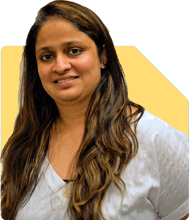
Respected Sir,
I request your guidance on my long-term corpus allocation and income-stability plan.
I am 48 years old, fit, and always ready to take up any work if required. My spouse is extremely supportive in all decisions. My current salary is ₹1,00,000 per month, and I maintain simple living with expenses of around ₹50,000. I have a ₹1-crore liquid corpus, plus ₹10 lakh maintained across bank accounts. I also hold ₹50 lakh term insurance, ₹12 lakh health insurance (plus corporate cover), 50–60 sovereigns of gold, and two small side businesses generating ₹8k–₹12k monthly. I expect to inherit houses from my mother and partly from my in-laws.
Since I may soon enter the age category where companies reduce senior staff, I am planning ahead for stability.
I intend to invest 70% of the corpus (₹70 lakh) via a one-year STP from a liquid fund:
Block A – Hybrid Funds (₹23 lakh): Withdraw ₹35,000/month for 6 years, starting after 2 years.
Block B – Aggressive Hybrid Funds (₹24 lakh): No withdrawal for 6 years; start thereafter.
Block C – Equity Funds (₹23–24 lakh): Flexicap, Multicap, Nasdaq 100, Large & Midcap; withdrawals after ~16 years.
The remaining ₹30 lakh will be kept for 2 years of expenses and emergencies. I also own two plots in Coimbatore and have zero debt. Having lost money earlier due to misplaced trust, I want to ensure my spouse and children remain fully protected. I may add another ₹10 lakh this year.
Kindly review and advise.
Ans: I truly appreciate your clarity, discipline, and openness.
Your preparation mindset shows maturity and responsibility.
Your spouse support adds great emotional strength.
Your simplicity creates strong financial resilience.
» Current financial position assessment
– Your income covers expenses comfortably today.
– Monthly surplus gives flexibility and options.
– Liquid corpus provides strong safety cushion.
– No debt reduces stress significantly.
– Insurance coverage shows risk awareness.
This foundation is strong and reassuring.
Many people lack such balance.
You have done many things right.
» Income stability concern at your age
– Corporate roles often change after mid-forties.
– Senior staff costs attract scrutiny.
– Skill relevance becomes critical.
– Mental readiness matters greatly.
– Your willingness to work is a big advantage.
This mindset keeps income risk manageable.
Adaptability is your strongest asset.
Age alone does not stop income.
» Emergency and liquidity structure review
– Rs.30 lakh reserve is sensible.
– Covers expenses for extended uncertainty.
– Helps avoid panic decisions.
– Supports confidence during transitions.
– Should remain low volatility focused.
Liquidity protects dignity during income gaps.
This buffer is essential.
Please keep this untouched.
» One-year STP approach evaluation
– Gradual deployment reduces timing risk.
– Emotional comfort improves discipline.
– Market volatility impact reduces.
– Cash flow planning improves.
– One-year duration is reasonable.
This shows prudence and patience.
It matches your risk awareness.
The approach is balanced.
» Block A allocation assessment
– Hybrid exposure suits near-term income needs.
– Rs.35,000 withdrawal plan is thoughtful.
– Two-year gap allows growth cushion.
– Six-year horizon suits moderated risk.
– Volatility impact remains controlled.
This block supports income continuity.
It reduces reliance on salary later.
Well aligned with stability goals.
» Withdrawal discipline for Block A
– Withdrawals must follow calendar discipline.
– Avoid ad-hoc excess withdrawals.
– Rebalance yearly if needed.
– Market downturns need patience.
– Income expectation must stay realistic.
Discipline protects capital longevity.
Consistency matters more than returns.
Avoid emotional decisions.
» Block B allocation assessment
– Aggressive hybrid suits medium horizon.
– Six-year no-withdrawal is wise.
– Allows compounding to work.
– Adds growth without extreme volatility.
– Bridges income to later years.
This block acts as growth buffer.
It supports inflation protection.
The role is clearly defined.
» Timing risk awareness for Block B
– Markets may underperform sometimes.
– Avoid shifting goalposts frequently.
– Review annually, not monthly.
– Stick to asset role.
– Avoid panic reallocations.
Patience strengthens outcomes here.
Time is your ally.
Let the plan work.
» Block C equity allocation evaluation
– Long horizon suits equity exposure.
– Sixteen-year wait shows maturity.
– Flexibility across styles helps.
– Global exposure adds diversification.
– Volatility tolerance is essential.
This block supports legacy and retirement.
It absorbs market cycles.
Long-term discipline is key.
» About global equity exposure mention
– Passive global products track markets blindly.
– They cannot avoid overvalued phases.
– They ignore local risks.
– Currency movements add uncertainty.
– No downside protection exists.
Actively managed global strategies adapt better.
They adjust allocation dynamically.
They manage risks consciously.
» Why active management suits you
– Markets are not always efficient.
– Skilled managers adjust exposures.
– Valuation awareness protects capital.
– Sector rotation improves outcomes.
– Risk management adds stability.
Your corpus deserves thoughtful handling.
Blind tracking increases drawdown risk.
Active oversight matters.
» Tax awareness on future withdrawals
– Equity withdrawals face capital gains tax.
– Long holding reduces tax impact.
– Planning withdrawals avoids sudden tax spikes.
– Debt taxation follows slab rates.
– Phasing withdrawals helps efficiency.
Tax planning supports net income stability.
Avoid lump sum redemptions later.
Timing improves outcomes.
» Gold holding perspective
– Physical gold gives emotional comfort.
– Acts as crisis hedge.
– Liquidity may vary.
– Storage and purity matter.
– Avoid excessive concentration.
Your gold quantity is meaningful.
Do not increase further aggressively.
Treat it as insurance asset.
» Side business income assessment
– Rs.8k to Rs.12k adds resilience.
– Diversifies income sources.
– Builds entrepreneurial confidence.
– Can scale with effort.
– Supports self-worth during transitions.
This income reduces pressure on investments.
Small streams matter greatly.
Nurture them patiently.
» Future inheritance expectations
– Inheritance should not be core plan.
– Timing remains uncertain.
– Legal processes take time.
– Maintenance costs may arise.
– Emotional factors also matter.
It is good as bonus.
Do not depend emotionally.
Plan independently always.
» Protection focus for spouse and children
– Term cover may need review.
– Inflation reduces real protection.
– Income replacement must be sufficient.
– Health cover looks adequate now.
– Claim experience matters more than premium.
Insurance is safety net.
It protects dreams, not wealth.
Periodic review is essential.
» Estate planning importance
– Nomination should be updated.
– Will drafting avoids disputes.
– Asset clarity reduces stress.
– Guardianship clarity protects children.
– Transparency builds family confidence.
This step gives peace.
It ensures smooth transfer.
Please prioritise this soon.
» Behavioural learning from past losses
– Trust without verification caused pain.
– Emotional decisions led to loss.
– Lessons are valuable now.
– Caution will protect future.
– Awareness builds resilience.
Do not regret past events.
They shaped your prudence today.
Growth often comes from pain.
» Risk capacity versus risk tolerance
– Capacity is strong due to corpus.
– Tolerance seems moderate and thoughtful.
– Plan reflects balanced mindset.
– Avoid chasing higher risk now.
– Stability matters more than maximisation.
This alignment is healthy.
Mismatch causes stress later.
You are balanced here.
» Adding Rs.10 lakh this year
– Deploy gradually with discipline.
– Align with existing blocks.
– Avoid impulsive lump sum.
– Maintain liquidity buffer intact.
– Reassess asset mix gently.
Incremental additions strengthen plan.
Avoid overcomplication.
Simplicity sustains discipline.
» Rebalancing philosophy
– Review allocation annually.
– Rebalance based on role drift.
– Avoid reacting to headlines.
– Discipline beats prediction.
– Process ensures consistency.
Rebalancing controls risk silently.
It keeps plan aligned.
Make it routine.
» Income gap scenario planning
– Salary loss may occur unexpectedly.
– Emergency fund buys time.
– Block A supports cash flow later.
– Side income adds cushion.
– Willpower supports action.
This layered structure is sensible.
Multiple supports reduce anxiety.
Hope remains intact.
» Mental and physical readiness
– Fitness supports earning ability.
– Confidence attracts opportunities.
– Willingness to work reduces fear.
– Skills update improves relevance.
– Mindset shapes outcomes.
Health is wealth truly.
Your fitness is an asset.
Protect it always.
» Avoiding common mistakes ahead
– Do not over-monitor markets.
– Do not compare with others.
– Do not chase trending ideas.
– Do not ignore reviews.
– Do not neglect family communication.
Stability comes from calm action.
Noise distracts focus.
Stick to plan.
» Role of guidance support
– Complex life phases need clarity.
– Independent perspective helps objectivity.
– Regular reviews improve discipline.
– Emotional buffering is valuable.
– Structure beats guesswork.
Support does not mean dependence.
It means accountability.
That protects long-term goals.
» Finally
– Your plan shows maturity and balance.
– Safety, growth, and income are aligned.
– Liquidity and discipline are strong.
– Family protection focus is clear.
– With patience, stability is achievable.
You have prepared thoughtfully.
Your confidence will grow with execution.
Stay steady and hopeful.
Best Regards,
K. Ramalingam, MBA, CFP,
Chief Financial Planner,
www.holisticinvestment.in
https://www.youtube.com/@HolisticInvestment



























